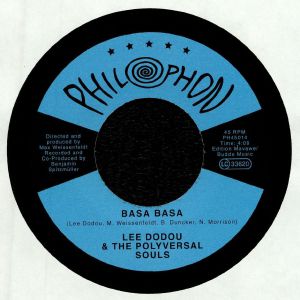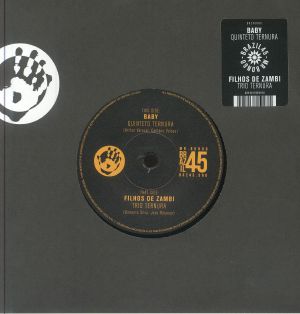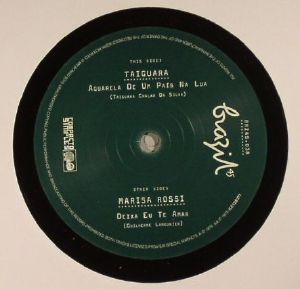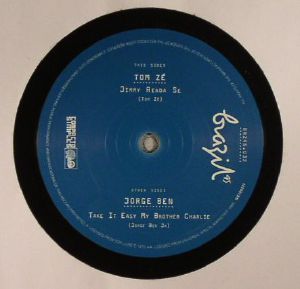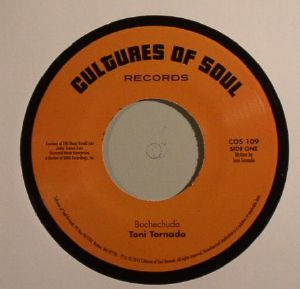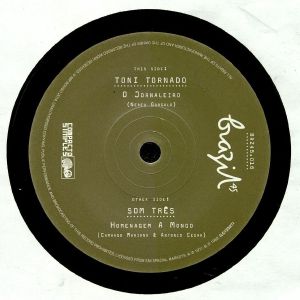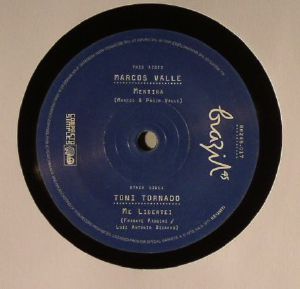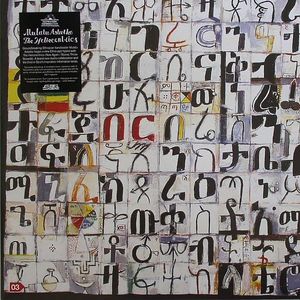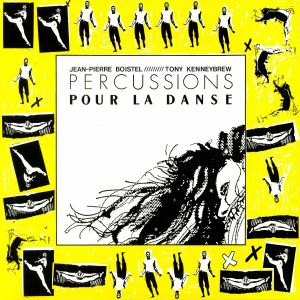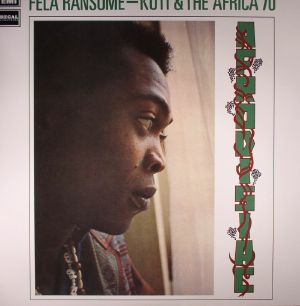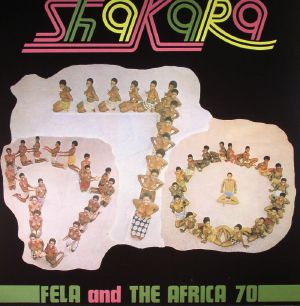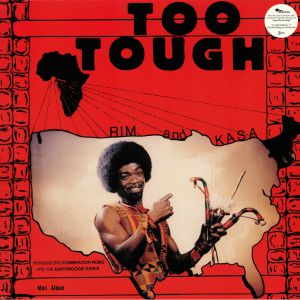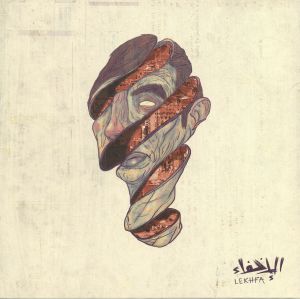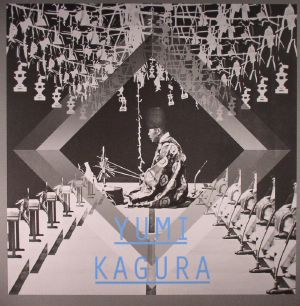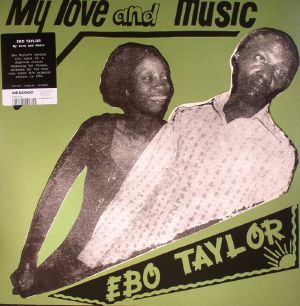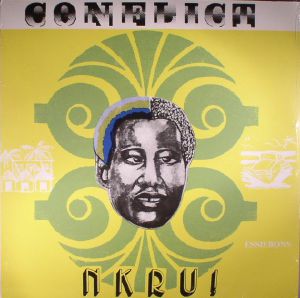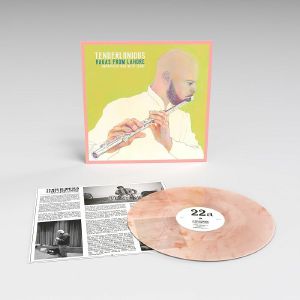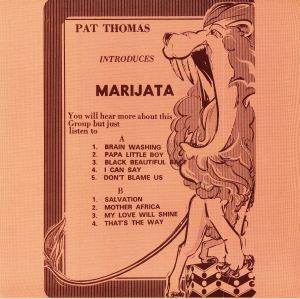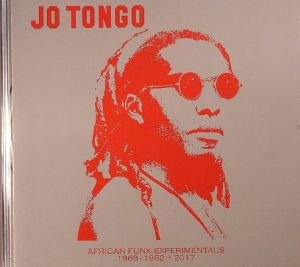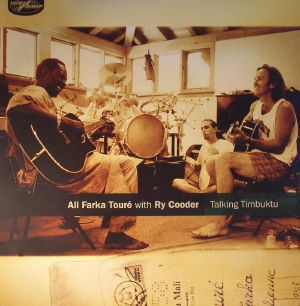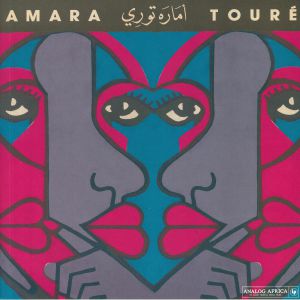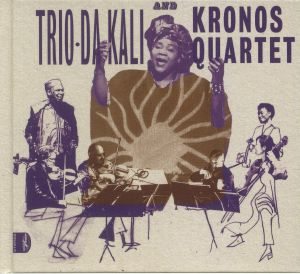Filter
Stock
Label
Featured
Release Title
Price
Tags
Back catalogue:
Juno's full catalogue of
Singles
Review: Those with a deep knowledge of Berlin's Ghanaian ex-pat "burger-highlife" scene may already be familiar with Lee Dodou, a singer who recorded a number of classic singles and albums during the 1980s as part of bands Georg Darko and Kantata. He retired from music in 1991, but has been persuaded to return to action by the Philophon team. This comeback single is pretty impressive all told, with A-side "Basa Basa" - a triumphantly celebratory chunk of 1960s "concert party" highlife rich in punchy horn lines and Dodou's full-throated vocals - being joined on the flipside by the slower, synth-laden "Sahara Akwantou". Brilliantly, the label describes this as "kraut-life" due to its unique (and rather good) fusion of highlife and German kosmiche.
… Read more in stock $10.25
Baby (remastered) (7")
Cat: BRZ 45060R. Rel: 27 Sep 24
Review: The remastered 7" reissue from Brazil 45s/Mr Bongo features two highly coveted tracks from Quinteto Ternura and their predecessor, Trio Ternura. This pressing revives two rare gems from the past with a fresh, high-quality cut. On Side-1, Quinteto Ternura delivers 'Baby,' a dazzling Brazilian modern soul track penned by Caetano Veloso and arranged by Arthur Verocai. Originally from their 1974 self-titled LP, this song is a smooth blend of tropical bliss and has long been a cherished rarity. Flipping to the Side-2, Trio Ternura's 'Filhos De Zambi' offers an upbeat samba-funk delight. Released in the same year, this track is filled with vibrant energy from the original trio, featuring a catchy chorus and a dynamic key change. Co-written by the siblings' father Umberto Silva and Jose Ribamar, it remains a dancefloor favorite. This reissue provides a valuable opportunity to own these classic tracks in their prime.
… Read moreIntérprete: Juno Recommends Funk
in stock $9.96
in stock $13.86
Aquarela De Um Pais Na Lua (limited 7")
Cat: BRZ 45038. Rel: 25 Jan 16
Review: Mr Bongo's Brazil 45s series continues its consistently rich vein of form with two more beautifully contrasting - and previously difficult to track down - Brazilian soul jazz fusions from the 70s. Side A is inhabited by one of the era's most interesting individuals. Infamously censored and eventually exiled, Taiguara's chaotic flute, guitar and piano arrangement is a tight weave of melodies, counter melodies and start dynamics. Flip for the classically soul-oriented "Deixa Eu Te Amar" will bright horns, brash drums and a bold vocal from Marisa Rossi. Pow.
… Read moreIntérprete: Afro Beat Foundation, The Expansions
in stock $12.47
Review: Mr Bongo's Brazil 45s series gets its rock on with two hairy grooves, both of which have enjoyed the sampler's crafty knives over the years. First up, Tom Ze's "Jimmy Renda-se" rolls with an oily sleazy groove that's peppered by a playful lyrical rhythm that transcends language barriers. Ben's "Take It Easy My Brother Charlie" joins the dots between Samba and very light Rock with all the signatures that made Mr Ben the legend he remains to this day with big vocal harmonies and infectious textures of Brazilian percussion.
… Read moreIntérprete: Mukatsuku Records Chart, Smoove, Hubbz, Afro Beat Foundation, JKriv (Razor-N-Tape), I Love 45's!
in stock $12.47
in stock $9.15
Review: Rich gutsy soul from a man who's regularly described as Brazil's James Brown, "O Journalerio" is a blueprint funk jam. Released in 1971 (on his hyper-rare album BR-3) it's all about the orchestrated swing, bluesy groove and Hammond licks so lavish you need to towel on every listen. Flip for Som Tres... An off-shoot of the Sambalanco Trio, it's the sound of Cesar Camargo Mariano controlling a restrained rolling slice of filmic instrumental funk where horns, keys and drums gather momentum with big band drama. Neither have been released on 45" before, making this all the more special.
… Read more in stock $12.47
Review: Two premium Latin funk documents on one limited 45, Mr Bongo deliver once again: Marcos Valle needs no introduction to Brazilian music enthusiasts. "Mentira" is a self-cover as Valle takes his 69 classic "Mentira Carioca" and develops the dynamic with a vocal style that's highly reminiscent of Donovan. Flip for Toni Tornado's Black Rio anthem "Me Libertei". Fusing sleazy rock n roll with jazzy Latin soul, madly this is the first time it's ever graced a 45!
… Read more! low stock $12.47
Álbumes
Cat: STRUT 040LP. Rel: 02 Apr 09
Intérprete: Ennio Styles, Mukatsuku Records Chart, 7 Samurai Tom Wieland freesoulinc, Spacewalker (Balance), AfroBase (Radio Chart), Simone Vimercati, Michael Ruetten, DJ Psycut, Jazzee Loudness, Inner Science, Elitechnique, JC - Here And Now Recordings, Afro Beat Foundation, SHOOK MAGAZINE, DJ Kobayashi
… Read more in stock $21.61
Percussions Pour La Danse (LP + insert)
Cat: LER 1016. Rel: 29 Jun 22
in stock $29.64
in stock $22.15
Shakara (reissue) (LP + insert)
Cat: KFR 20271. Rel: 14 Oct 16
Intérprete: Aleqs Notal, Juno Recommends International
in stock $23.26
Review: Having re-released Rim Kwaku's long lost Rim Arrives album, BBE follow it up with more dusty disco treasures from the Ghanaian hit maker's repertoire. From the blistering horns and thundering drum rolls of the near-nine-minute romp "Shine The Ladies" right the way through the looser, more Afrobeat-focussed "Peace Of Mind" by way of the emphatic Stevie Wonder-style showmanship of "I'm A Songwriter" it's a collection that still sparkles with soul 30 years after they were recorded. If you're unaware of Rim's story, you'd be wise to check it; from Quincy Jones endorsements to homelessness in the space of 24 hours, Rim's tales are as serious as his music is funky.
… Read moreIntérprete: Andrew Pirie (Melting Pot), Mukatsuku Records Chart, Mike Shawe ✮ Hot Buttered Soul, Phillie P (Ice City Rec), Craig Charles Funk And Soul, Javi Bayo, Adventures In Paradise, Ionik (Traveller Records, KGS), Randy "Hotthobo" Ellis, Sha'D Underground Trax, BBE, Far Out Recordings, Juno Recommends Funk, I Love Disco!, Ray Mang, Kenneth Bager // Musicfordreams, BBE Records, Skyline Recordings Chart, Daniel T. (Cosmic Kids/Heat-Wave), Señorlobo (Lovemonk), Justin Gg Green, Red Greg, Djs: Most Charted - Funk, Tomasz Guiddo, Chesney, Replay Records Germany, Dinked Records
… Read more in stock $29.91
in stock $13.28
Intérprete: Dj soFa, Juno Recommends International
in stock $21.89
Review: A true Ghanaian legend, Taylor's fusions of traditional Ghanaian music with jazz, funk, reggae and soul helped set the blueprint in the early 70s and here's where it all began: 1975, a highly limited debut on Gapophone Records. Reportedly pressed only 500 times due to the country's dictatorship, it's a beautiful introduction. Sweet-tasting highlight with strong reggae references throughout, highlights include the epic 13 minute jam "Maye Omama" and the ebbing, flowing rocksteady soul of "Will You Promise". Still active, teaching and playing at the age of 80, Taylor's music has matured just as well as he has.
… Read more in stock $22.45
in stock $22.99
Ragas From Lahore: Improvisations With Jaubi (transparent pink marbled vinyl LP + insert)
Cat: 22A 038LPP. Rel: 26 Sep 24
Review: During a trip to Lahore, Pakistan in April 2019, multi-instrumentalist and all-rounder jazz musician Tenderlonious set about a storied collaboration with local quartet Jaubi, laying down a set of six full, original instrumental ragas form a single one-day recording session. The result is the record you hear here; the emanative sounds of Indian and Pakistani classical music, acting as a framework for a spiritual interdiction between Tenderlonious on flute and soprano sax and Jaubi band members on tabla, vocals, sarangi and guitar. A determinant synth drone, lent to the euphony by Polish composer Marek Pedziwiatr, underlies the entire suite, lending this six-pack a not unfuturistic mood of brooding. Four years in the post-productive making, Ragas From Lahore is a pristine, on which the boughing lops of the tabla, the effortless flurries of the sarangi and apical vocal, and the arch-mood of overcoming and perseverance through strife, are felt with full sway. A deeply foreboding, but rewarding contemporary raga album.
… Read more in stock $32.97
Pat Thomas Introduces Marijata (reissue) (Record Store Day 2018) (180 gram vinyl LP)
Cat: MRBLP 158. Rel: 01 May 18
Review: We love RSD only for one thing, and that's providing us with inaccessible records that have been snapped-up by Discogs sharks over the years. This timely reissue of Pat Thomas second LP from 1976, the wonderful Marijata, is one such record that has become impossible to find in its original format, and one which allows us to have some access to the highlife beat, one of our biggest loves. While much of this album rests in classic soul and funk, Pat Thomas' Ghanaian influences are loud and present, whether through the guitars, the aesthetics of each instrumental and, of course, the quality of the recording itself. Funk out to some ORIGINAL STYLE. Cop it quick!
… Read more in stock $24.65
in stock $7.66
Review: A welcomed heavyweight vinyl reissue of 1994 GRAMMY award winning album from two of the 20th century's most inspirational, creative bluesmen from two wholly contrasting sides of the world: Ali Farka and Ry Cooder. Most of Talking Timbuktu kicks its feet in the dusty plains of Mali with traditional instrumentation and time signatures before dropping into occasional splashes of soul surging blues such as the fiddle-like picking of "Ai Du" and the foot-stamping yearns of "Amandrai". A timeless meeting of two amazing minds that will never happen again, this should be reissued every 20 years by law to ensure future generations are aware this happened.
… Read more in stock $34.35
Amara Toure 1973-1980 (limited gatefold 2xLP + MP3 download code)
Cat: AALP 078. Rel: 30 Jun 20
Review: Cuba-meets-Cameroon-via-Guinea-and-Senegal, the roots of this African-adopted Cuban sound are as rich, unique and exciting as Amara Toure's tale itself. After years of club performing in Dakar, Amara and his Black & White Ensemble in the late '60s and proceeded to release 10 songs during the '70s. Here, for the first time ever, all of these recordings are united on this immaculately presented collection. From the cobble-kicking percussive Cuban heels and emphatic harmonies of "Fatou" to the deep yearning crooning blues of "N'ga Digne M'be" and the spacey, out-of-this-world guitars and jazzy trumpet lead of "N'Niyo", there's something very special and unique about this collection. With a heart that beats in Africa but a soul that shines with Cuban fire, as Analogue Africa state themselves... It's only taken 10 songs for Amara to become a legend. Very few artists can claim this feat.
… Read more in stock $21.89
in stock $44.32
Intérprete: Juno Recommends International
in stock $13.05

 USD
USD





